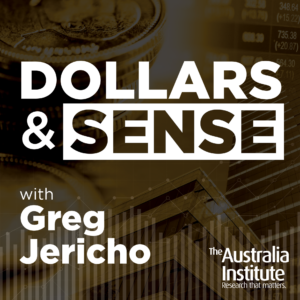Robodebt and super tax: Rob the poor, feed the rich?

When our most vulnerable are treated with suspicion, and our wealthiest get massive tax cuts, what does that say about our priorities?
On this episode of Dollars & Sense, Matt tells Elinor about the massive class action lawsuit settlement the Government made with the victims of Robodebt, Labor potentially getting cold feet on superannuation tax concession reform, and what they both tell us about how Australia views our poorest and wealthiest people.
This discussion was recorded on Thursday 11 September 2025 and things may have changed since recording.
Dead Centre: How political pragmatism is killing us by Richard Denniss is available now via the Australia Institute website.
Host: Matt Grudnoff, Senior Economist, the Australia Institute // @mattgrudnoff
Host: Elinor Johnston-Leek, Senior Content Producer, the Australia Institute // @elinorjohnstonleek
Show notes:
The Australia Institute Revenue Summit 2025
‘The changes to superannuation tax concessions are needed and very fair’ by Greg Jericho, the Australia Institute (May 2025)
Theme music: Blue Dot Sessions
We’d love to hear your feedback on this series, so send in your questions, comments or suggestions for future episodes to podcasts@australiainstitute.org.au.
Between the Lines Newsletter
The biggest stories and the best analysis from the team at the Australia Institute, delivered to your inbox every fortnight.
You might also like
Government’s FOI changes could cover up the next Robodebt – new research
Proposed changes to Australia’s Freedom of Information (FOI) laws would make a repeat of the disastrous Robodebt coverup more likely, rather than less, according to new research by The Australia Institute.
The changes to superannuation tax concessions are needed and very fair
The arguments against the government’s changes to the taxation of superannuation are nothing more than lies and fear.
Rates are down (Elinor still can’t afford a house)
Rate cuts are great, but the Government needs to make sure that housing investors aren’t the main beneficiaries.




